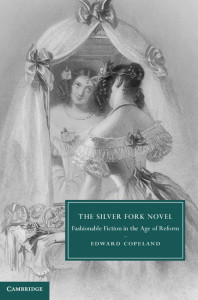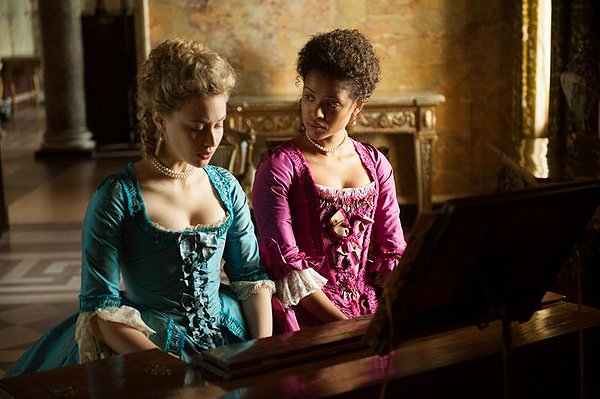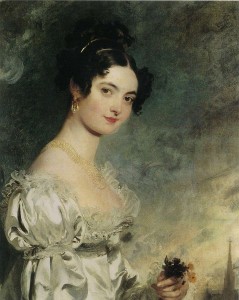 Likely the more research-minded of the Riskies knew about this genre already (and Sandra Schwab added more to my knowledge), but just this week I was looking for a type of novel that would be written in the early Victorian era, and I found out about ‘Silver fork‘ novels (my heroine’s sister is writing a serial).
Likely the more research-minded of the Riskies knew about this genre already (and Sandra Schwab added more to my knowledge), but just this week I was looking for a type of novel that would be written in the early Victorian era, and I found out about ‘Silver fork‘ novels (my heroine’s sister is writing a serial).
These are novels that were set in the Regency, but written thirty years later, taking a reminiscent look back at the period but also casting a censorious eye on some of its frivolities (this was the Victorian era, remember). I was trying to think about how that would work now; would novelists return to the mid-’80s and write about new wave, and about Ronald Reagan’s presidency, and the ending of the Cold War, and Prime Minister Thatcher? There are novels that do that, of course, but it’s not a genre, per se.
Inevitably there came the anti-silver fork novel movement, which deglamorized the period, didn’t concentrate on the aristocracy, and tried to be less treacly in writing about the period.
It’s looking back at these kinds of artistic movements that make me realize we’re not so different from our ancestors, 200+ years on. We continue to write, and react-write, and react-react-write, so that everything keeps rolling in a continuous circle.
And meanwhile, I am almost up to 10,000 words on the new book, a Marriage of Convenience story with a rakish duke and his perfectly impeccable duchess. Here’s a bit from the beginning:
So he was not so happy when he heard his brother Griffith calling his name.
Griff wasn’t bad, as brothers went, in fact Nicholas quite liked him. But Griff, unlike his older brother, did not habituate houses of ill repute, nor even houses of good repute, instead usually staying in the library to spend more time reading.
“Excuse me, ladies,” Nicholas said, removing the woman from his lap and placing her gently beside him. He did up the buttons of his shirt and ran a hand through his hair, which he knew was entirely disheveled, thanks to the sensual stroking and playing that had been done to it.
“In here, Griff,” he shouted, getting to his feet. He was just tucking his shirt back into his trousers when Griffith entered, his brother’s eyes widening as he saw what must have appeared to be absolute and total debauchery in the room.
Or, as Nicholas liked to call it, Tuesday.
Hope everyone is having a lovely weekend!






 In the movie, the extreme complications of social status and jockeying for position are illustrated in dozens of nicely nuanced ways. Belle’s life is defined by both her birth into a noble family, and the color of her skin. She is made an heiress, while her cousin Elizabeth is dowerless. Belle is illegitimate, but her father loved and claimed her. Elizabeth’s birth was legitimate, but her father has abandoned her. Which elements trump which? Even the young women, raised as sisters, argue about it –but only in the privacy of their chamber, of course.
In the movie, the extreme complications of social status and jockeying for position are illustrated in dozens of nicely nuanced ways. Belle’s life is defined by both her birth into a noble family, and the color of her skin. She is made an heiress, while her cousin Elizabeth is dowerless. Belle is illegitimate, but her father loved and claimed her. Elizabeth’s birth was legitimate, but her father has abandoned her. Which elements trump which? Even the young women, raised as sisters, argue about it –but only in the privacy of their chamber, of course.